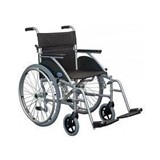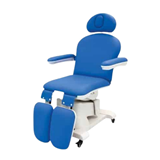Often promoted as a safe and effective pharmaceutical option for many types of pain, the public has adopted a false sense of security in using these medications and many have become dependent as a result.
This is a significant concern for the health of Australians, as effects related to the overuse of opioid painkillers become more evident.
Read about the misuse of prescription pharmaceutical drugs in Australia
Side effects of prescription painkiller addiction
While it stands to reason that prescription medications sold at pharmacies are substantially safer than those available on the street, all such medication is potentially detrimental.
When used for extended periods of time, many people seek higher doses to meet pain relief needs and fulfil cravings. This can be very dangerous as opioid overdose can lead to toxicity and dose-related deaths. In Australia, deaths due to opioid overdose doubled over the three-year span from 2007 to 2010, which is associated with wider use of the medication.
There are also side effects associated with the use of prescription painkillers that become more evident with ongoing use and increased doses. These include slowing in respiration and constipation. In addition, many people find that the painkillers alter their behaviour significantly, which is often most notable by the family and friends of the affected people. If opioids are ceased suddenly, patients usually experience severe withdrawal effects that encourage them to continue using the medications.
Identifying a 'legitimate purpose'

Unfortunately, health professionals are in part to blame for Australia's growing addiction to prescription painkillers. It began with promoting their use to help with many types of chronic pain, often without sufficient guidance and advice about how to take the medication and lessen the risk of developing drug dependence.
Now the issue of how to address painkiller addiction is evident and health professionals are in the position to help people with an addiction to painkillers, and to prevent more people from becoming dependent.
Whilst some patients genuinely need painkillers to help them on a daily basis, not all people require prescription opioids to manage their pain. When doctors encounter someone seeking a prescription painkiller to manage their pain, there should be a legitimate purpose for the medication and it should improve the patient's quality of life.
Additionally, once prescribed the doctor needs to provide ongoing support to the patient, helping them to understand the possibility of dependence and lessening this risk by using appropriate doses.
Due to the high levels of dependence, many patients are seeking prescription painkillers from multiple doctors and pharmacies to source sufficient doses to meet their needs, known as 'doctor shopping'.
"Doctors are more and more becoming de facto dealers, and I don't think any of us want that," says veteran addiction doctor, Rodger Brough.
It is in our hands to serve the public and determine who will benefit from prescription painkillers. We should provide adequate pain relief to those that need it and help those with an addiction to reduce doses and ease away from dependence.
Read more on the issue of recognising patients seeking prescription painkillers for addiction














-160x160-state_article-rel-cat.jpg)

